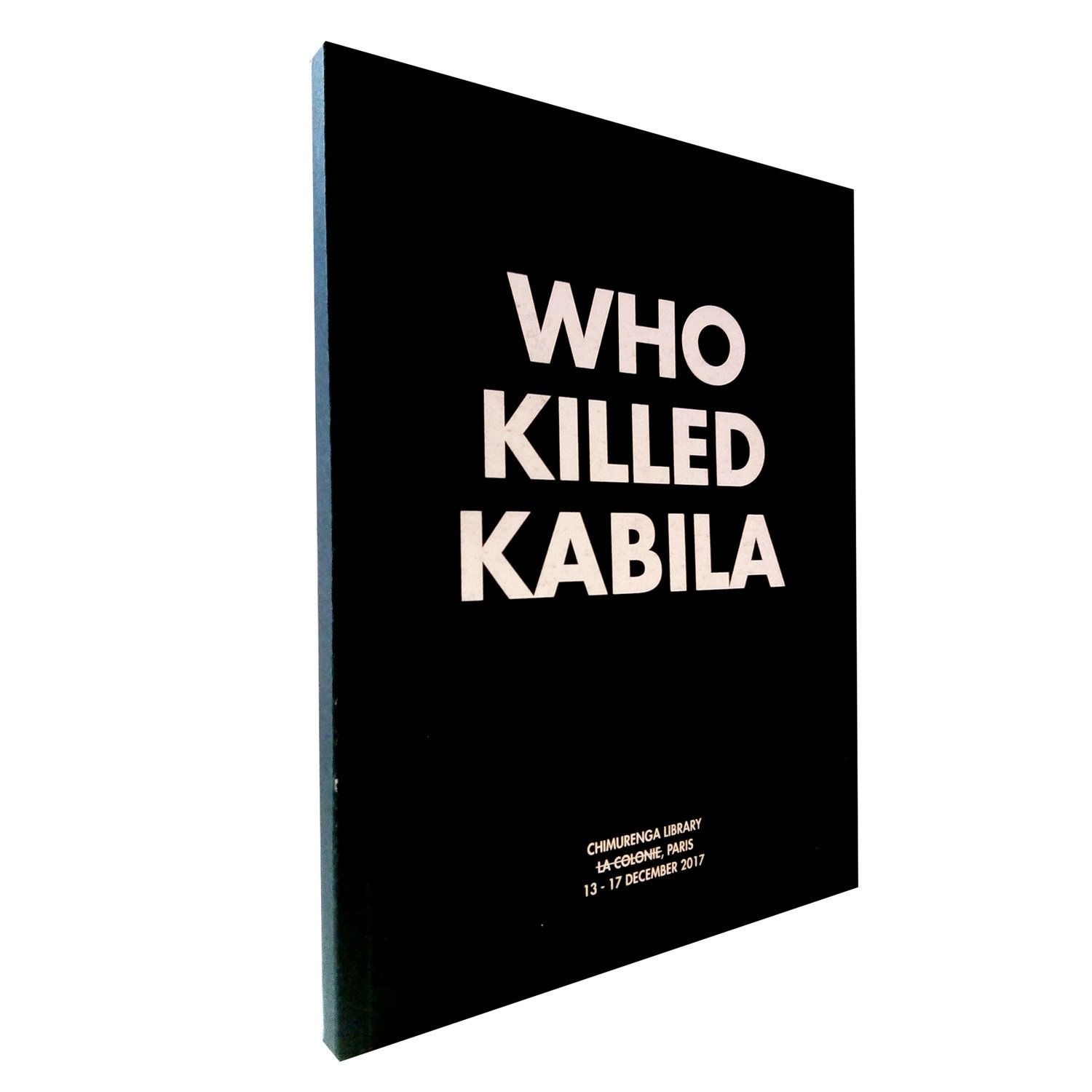“Mandela was not the only head of state taken in by Koagne. Le king kept snapshots of himself with many a man of power, among them Mobutu Sese Seko and Denis Sassou Nguesso […] He took Mobutu for 15 million dollars. Blaise Compaoré of Burkina Faso lost 40 million to him. Sassou, Etienne Eyadéma of Togo, several high officials of Gabon, Tanzania and Kenya, a member of the Spanish government and an ex-operative of the Israeli Mossad were bamboozled as well.” – Dominique Malaquais (Blood Money: A Douala Chronicle).
Bantu Serenade by Ntone Edjabe (featuring Nah-ee-lah) (read excerpt)
Santu Mofokeng: Trajectory of a street photographer (part1) (read excerpt)
Binyavanga Wainaina: Hell In Bed With Mrs Peprah (read excerpt)
Dominique Malaquais: Lindela (the winnie suite) (read excerpt)
Boubacar Boris Diop: Myriem (read excerpt)

Cover:
Neo Muyanga
Who Killed Kabila (December, 2017)
Who Killed Kabila (December, 2017)
From December 13 – 17, 2017, Chimurenga installed a library of books, films, and visual material mapping extensive research that ask “Who Killed Kabila”, as the starting point for an in-depth investigation into power, territory and the creative imagination. This book catalogues all the research material produced and collected for this installation.
The equation is simple: the length of a Congolese president’s reign is proportional to his/her willingness to honour the principle that the resources of the Congo belong to others. Mzee Kabila failed.
Who killed Kabila is no mystery either. It is not A or B or C. But rather A and B and C. All options are both true and necessary – it’s the coming together of all these individuals, groups and circumstances, on one day, within the proliferating course of the history, that does it.
So telling this story isn’t merely be a matter of presenting multiple perspectives but rather of finding a medium able to capture the radical singularity of the event in its totality, including each singular, sometimes fantastical, historical fact, rumour or suspicion.
We’ve heard plenty about the danger of the single story – we want to explore its power. We take inspiration from the Congolese musical imagination, its capacity for innovation and its potential to allow us to think “with the bodily senses, to write with the musicality of one’s own flesh” (Mbembe).

